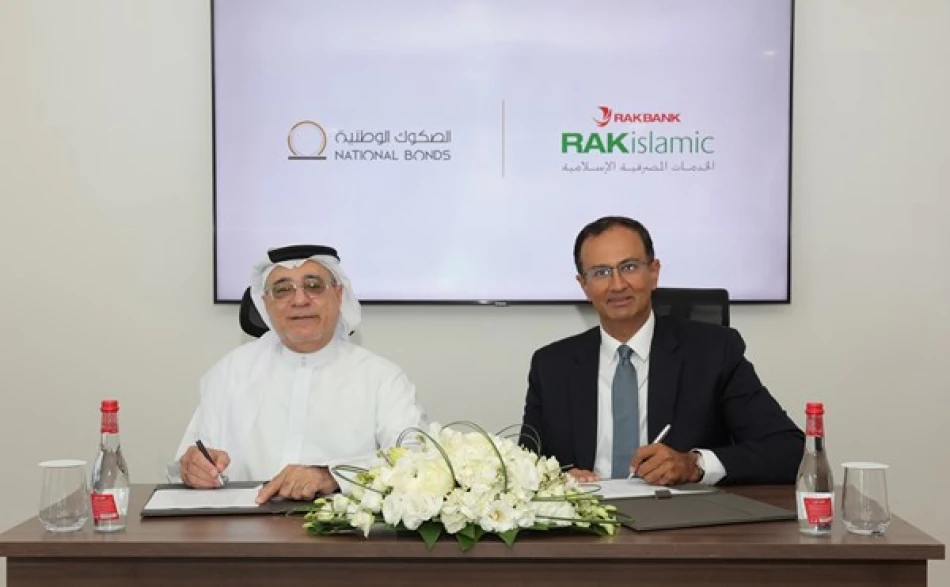
National Sukuk Platform Welcomes RAK Bank to Liquidity Management Solution
UAE's Islamic Finance Infrastructure Expands as RAK Bank Joins National Sukuk Platform
The UAE's Islamic finance ecosystem strengthens further as RAK Bank becomes the latest institution to join the National Sukuk Company's liquidity management platform, a move that signals growing institutional appetite for Shariah-compliant digital trading solutions. The platform has processed over AED 199 billion in transactions since 2013, with AED 33 billion traded in 2024 alone, highlighting the robust demand for Islamic financial instruments in the region.
Digital Islamic Finance Takes Center Stage
The National Sukuk Company's "Al-Minassa" platform represents one of the region's pioneering electronic trading systems for mudaraba-based sukuk, specifically designed for institutional financial partners. Since its launch in 2013, the platform has evolved into a critical piece of the UAE's Islamic finance infrastructure, offering 24/7 automated subscription, transfer, and redemption services for licensed financial institutions.
RAK Bank's integration into this system reflects a broader trend of traditional banks embracing digital Islamic finance solutions. The platform's impressive transaction volume growth—with 2024 accounting for roughly 17% of its total historical volume—demonstrates the accelerating digitization of Islamic capital markets.
Strategic Positioning in Global Islamic Finance
The UAE's approach mirrors similar initiatives across major Islamic finance hubs, but with a distinctly technology-forward edge. While Malaysia has long dominated Islamic bond issuance and Saudi Arabia has emerged as the largest sukuk market by volume, the UAE is carving out a niche as the region's fintech innovation center for Shariah-compliant instruments.
This positioning becomes increasingly valuable as global Islamic finance assets are projected to reach $4.9 trillion by 2025. The UAE's emphasis on digital infrastructure and regulatory clarity provides a competitive advantage over markets that rely primarily on traditional trading mechanisms.
Market Implications and Institutional Adoption
For institutional investors, RAK Bank's participation expands the liquidity pool and potentially reduces bid-ask spreads in the sukuk secondary market. The platform's automated nature addresses a key pain point in Islamic finance—the traditionally manual and time-intensive nature of Shariah-compliant transactions.
Mohammed Qasim Al Ali, CEO of National Sukuk Company, emphasized that the partnership represents another step toward enabling broader access to Shariah-compliant platforms through fintech and digital innovation. This strategy aligns with the UAE's broader Vision 2071 goals of becoming a global hub for Islamic economy.
Banking Sector Transformation
Raheel Ahmed, CEO of RAK Bank, positioned the partnership as an extension of the bank's commitment to providing Shariah-compliant solutions, enabling customers to benefit from services with enhanced efficiency and flexibility. This move is particularly significant for RAK Bank, which has been expanding its Islamic banking footprint as part of its broader digital transformation strategy.
Regional Competition and Future Outlook
The UAE's digital Islamic finance initiatives face competition from Singapore's Islamic finance hub ambitions and Malaysia's established sukuk market infrastructure. However, the Emirates' regulatory agility and technology adoption rate provide distinct advantages in attracting international Islamic finance players.
The platform's consistent growth trajectory suggests that institutional demand for liquid, efficient Islamic financial instruments will continue expanding. As central banks globally explore digital currencies and blockchain applications, the UAE's early investment in digital Islamic finance infrastructure positions it favorably for future market developments.
The success of such platforms will likely influence how other GCC countries approach Islamic fintech regulation and infrastructure development, potentially accelerating regional harmonization of Islamic finance standards and practices.
Most Viewed News

 Layla Al Mansoori
Layla Al Mansoori






